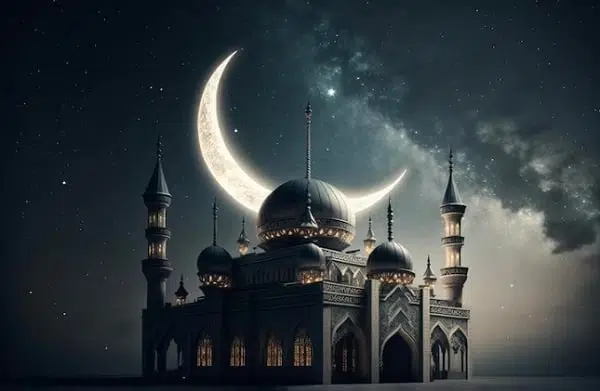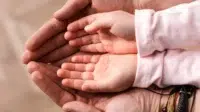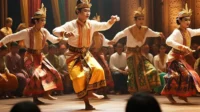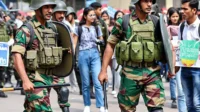Jakarta, February 17, 2025 – “Bismillah”, the wellspring of all goodness, the doorway to every meaningful beginning. It is with these words that we set everything in motion. This is a brief reflection on Ramadhan, a month meant to bring out the best in us. Yet, more often than not, once it passes, people return to who they were before. Ramadhan leaves behind no lasting mark. Illa man haada Allah.
This is Ramadhan…
Where all things are cleansed, even the heart.
Where all is prepared, including the heart.
Where all is granted rest, especially the heart.
For when the heart is pure,
The Qur’an flows to completion,
And tahajjud fills the night.
When the heart is ready,
Tarawih becomes delightful,
And knowledge is sought with passion.
When the heart is at peace,
Worship becomes rest,
And blessings are pursued with focus.
This is no ordinary month,
But a noble one, adorned with noble deeds.
Rewards are multiplied,
And so is joy..
The joy of breaking the fast,
And the joy of meeting the Lord.
Once again, illa man haada Allah, except those whom Allah guides. So, how do we receive that guidance?
Let me take you back to a memory. I spent part of my youth at an Islamic boarding school in Karanganyar, Solo. A junior high school focused on Qur’an memorization.
What made it special was its deep emphasis on honesty and a sense of family. When someone broke the rules or ran into trouble, it wasn’t punishment that followed, but heartfelt conversations. Problems were solved through empathy, not harshness, always aiming for a resolution that left no one wounded.
Our school was tucked away in a village, woven closely into the fabric of the local community. Everything we did, the way we lived, spoke, and behaved, was visible to the villagers. But instead of feeling watched, we felt embraced.
We built real connections with them, joined in their joys and sorrows, and visited them often, whether to comfort the ill, attend funerals, or celebrate special moments. I was frequently invited to recite the Qur’an during Sunday morning gatherings. And honestly, I enjoyed it.
Then came my first Ramadhan there. I was just a seventh grader at the time. One memory that still makes me smile is when I was asked to give a short Tausiyah after the dawn prayer at the village mosque. I was so small that when I climbed the pulpit, no one could see me.
The elders chuckled warmly, and in the end, I gave the Tuasiyah standing in front of the pulpit instead. That happened more than once, until the next Ramadhan, when I finally found a solution: I stacked a few mattresses on the pulpit to make myself visible.
There’s another moment I’ll never forget. One evening before tarawih, our teacher, whom I called ustadz, asked me to lead the prayer. I was puzzled until an elderly man gently nudged me toward the imam’s place. And just like that, I led tarawih for the first time at the village mosque.
I recited long surahs with confidence, but during the witr prayer, I made a mistake in Surah Al-Falaq. The entire jama’ah corrected me in unison. It was mortifying at the time, but it later became a favorite joke among the elders.
As our school became part of the village, more and more local kids our age began spending time with us. Some even stayed overnight at the school. There were no walls between us, just friendship. That Ramadhan turned into something vibrant, full of life. We were bursting with energy: racing to finish the Qur’an, praying the sunnah, joining tarawih and tahajjud, attending religious talks, and sharing sahur and iftar together. My enthusiasm never wavered.
But now, each Ramadhan feels different. The excitement seems to fade. Outside, in a diverse world, Ramadhan is often treated like just another month. Some Muslims eat and drink openly during the day, without guilt or shame. And there’s even a disturbing phrase: “Respect those who don’t fast.” Na’udzubillah.
We often see people who seem religious on the surface, but whose actions speak otherwise. When I visit home during holidays, I see people wasting time, unmotivated to do good in Ramadhan. Many only show up at the mosque for iftar or to disrupt tarawih.
Nights are spent in idleness, not worship. As the month passes, dhikr fades, prayer lines thin, and mosques empty out. Instead of ending Ramadhan strong, people rush to shop for Eid—new clothes, phones, jewelry. Everything is renewed—except the heart. And when Ramadhan ends, so does their faith. It becomes nothing more than a yearly cycle of shallow repentance. So, what’s left of the blessing? Why has Ramadhan become a fleeting euphoria?
Back to the question I asked earlier: how do we find that guidance? How do we emerge from Ramadhan truly renewed, as Eid was meant to mark? How do we make sure Ramadhan doesn’t just slip through our fingers?
Here’s something I’d like to share, dear brothers and sisters: The most urgent need for any Muslim is to genuinely seek guidance. We ask for it 17 times a day, Ihdinas siraathal mustaqeem. But asking alone isn’t enough. We need qudroh, the strength to carry that guidance forward.
Then mujaahadah, the will to strive for it. Then istiqomah, the consistency to keep going, until by God’s mercy, we reach a blessed end: husnul khotimah. These five things are the pillars of holding firmly to Allah’s path.
One thing is certain: sooner or later, Ramadhan will leave us. Blessed are those who tasted its sweetness, embraced its beauty, and received its greatest gifts. They didn’t let this Ramadhan slip by in vain, because deep down, they knew… they might never see another.
So, let’s be among those people, those who carry their good deeds forward without pause. Tarawih continues, and so does tahajjud. The Qur’an remains a daily companion, perhaps even completed a hundred times. Sunnah prayers are held dear. Muraja’ah flows freely. Shadaqah overflows. Smiles light up faces and soften hearts. That’s the spirit we’re meant to carry.
Because when the heart is pure, worship no longer feels like a burden. The Qur’an never grows tiring. Because when the heart is pure, the goal becomes clear: Allah’s pleasure and His blessings, paradise at the end. Because when the heart is pure, calling to good and staying away from wrong becomes second nature.
I say all this so that Ramadhan won’t be wasted. How many people fast during this sacred month, yet walk away with nothing but hunger and thirst? “Rubba shaa’imin laisa lahu min siyaamihi illal juu’.” What a tragic loss that is.
This is my small reflection on Ramadhan. I just don’t want to watch terms like “moral decay” and “value degradation” thrive while Ramadhan > sent to heal, to transform, to guide, quietly passes us by. No matter how far we’ve strayed or how heavy our sins, Ramadhan is the field where we plant goodness and wipe the slate clean.
I once heard some ustadz say: “We are given Ramadhan so our sins can be forgiven. But if, even with this chance, you still refuse to repent—how many more Ramadhans do you think you’ll get? Allah is saying: ‘You carry many sins. You are not noble—your shame is merely veiled by Me so that others don’t see it. Why not weep for your sins and seek My forgiveness?’ You’ve been given Ramadhan, yet you still turn away, so how else do you expect to reach Paradise? You say you want it, but when the door is open, you walk past it. If you end up in Hell, who is to blame?”
There’s a profound truth in those words. When Allah grants you an opportunity, take it.
Because there’s no guarantee there will be another. Change begins with you. “Indeed, Allah will not change the condition of a people until they change what is in themselves.” And may His mercy always be what our hearts long for most.
Author: Sholahuddin Al-Ayyubi
Editor: Salwa Alifah Yusrina
Bahasa: Rahmat Al Kafi
Ikuti berita terbaru Media Mahasiswa Indonesia di Google News















